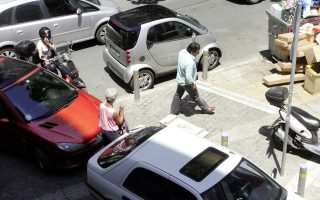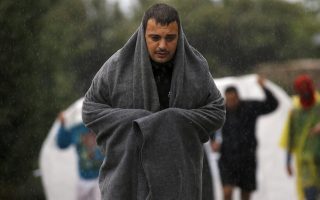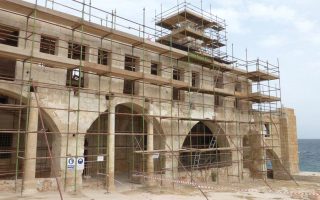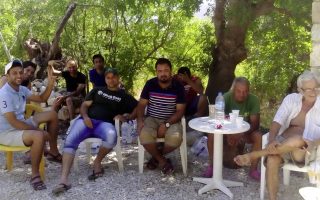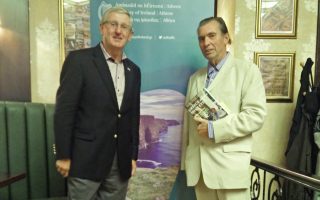News story prompts reunion between German journalist, Greek Holocaust survivor
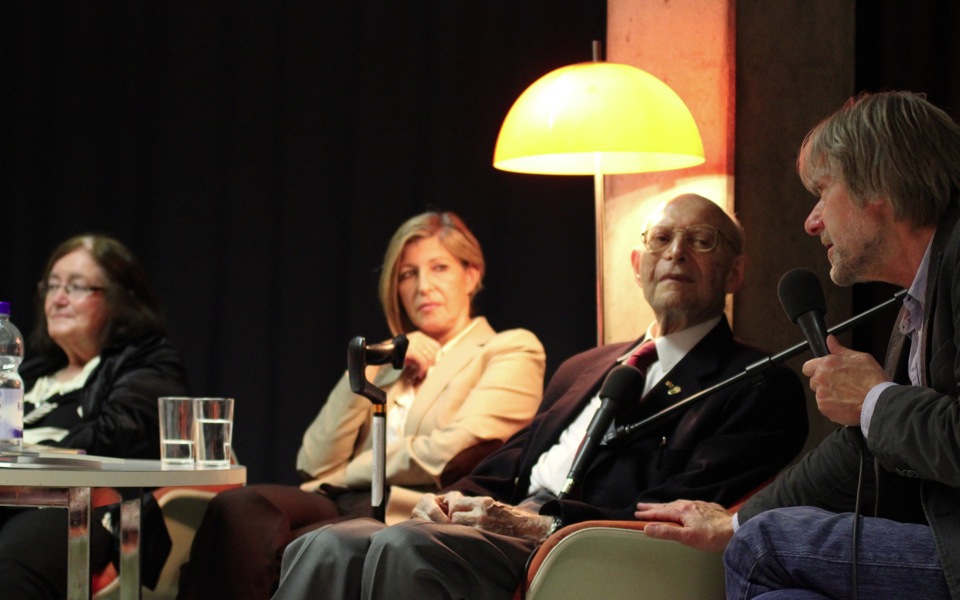
Newspaper old-timers have a point when they say that the most beautiful stories can often be found in readers’ letters to the editors, and a fine example landed on the doorstep at Kathimerini recently, handwritten in a somewhat old-fashioned hand and sprinkled with just a few spelling mistakes.
“I apologize for any errors in Greek; I taught myself the language,” said the writer, 77-year-old Gizela Kalariti from Ulm in Germany. The surname comes from her late Greek husband but her knowledge of the language is all her own, learned long before she met him thanks to a deep love of all things Greek from a young age. Her attraction was inexplicable. In fact, her father asked her one day: “What is it about the country that draws you so strongly? Perhaps we have some distant relation?” Extensive research into the family’s genealogy failed to turn up a link. Before retiring, Kalariti worked as a journalist in a local newspaper, in which she had published a plethora of pieces on Greece.
But why was she writing to Kathimerini now? It all started last April when she read an edition of the paper dated March 15, “with some delay,” she admits. A faithful reader for the past 25 years, Kalariti has her local newsagent save her copies of the Sunday editions of Kathimerini, Ta Nea and Efimerida ton Syntakton.
“But I had been busy and didn’t get my hands on the paper until some days later,” she wrote. As she eventually leafed through it her attention was drawn by a photograph with a story by Sakis Ioannidis on 87-year-old Heinz Kounio, one of the last survivors of the Holocaust, a Jew who had boarded the first train to leave Thessaloniki 70 years ago for Auschwitz. The sight of the photograph took Kalariti back 30 years.
“I grew more and more restless as the days passed. I kept thinking that I had to do something. But what? For me it was an incredible story,” she wrote to Kathimerini.
Kalariti has visited Thessaloniki in 1984 to research a story on the city’s Jews, over 90 percent of whom were exterminated in the Nazi death camps. As she wandered around the city, she happened on Kounio’s photography studio. They spent several hours talking.
“That is when I got his book, ‘I Survived Death,’ which I’ve read three or four times. He had taken most of the photographs in the book. He told me that when the camp was liberated – he was just 35 kilos by then – the Americans asked him his profession. He told them he was a photographer and they gave him a camera. That is why we have so many original photographs from that event,” said Kalariti.
In 1988 Kalariti met Kounio’s sister Erica, but as the years passed, they eventually lost touch.
“But I didn’t forget them,” said Kalariti. “I didn’t know whether they were alive or dead until I read that Kathimerini paper.”
The story got her thinking. “I spent a week pacing around my apartment thinking of what I could do,” she said. She started by calling a friend who taught at the University of Ulm and pitched the idea of organizing a series of events on Greece.
“For so many years the German press has been insulting the Greeks, writing about their mistakes, that they are lazy; it’s not right. It’s not right to tar an entire people with the same brush.”
Her friend agreed with alacrity and she proposed a screening of Giorgos Avgeropoulos’s documentary on the Greek crisis, “Agora,” a talk by writer Petros Markaris on the last book of his trilogy on the crisis, “End Titles,” as well as presentations by Greek Holocaust survivors Argyris Sfountouris from Distomo, and, of course, Kounio.
Kalariti was concerned about whether Kounio would agree to travel.
“I looked through all my old address books, 30 years’ worth, and found his home phone number. I was nervous but told myself, ‘Be brave.’” Kounio, like the other three guests, accepted the invitation at once and spoke at the university on September 30.
“When he arrived I spent three or four hours with him at his hotel; we spoke a lot. It was such a lovely atmosphere, as though we were neighbors,” wrote Kalariti. “The event was a big success; you could hear a pin drop. Despite his years, he spoke for an hour-and-a-half about what he went through in the SS camps. His daughter, who had accompanied him, would help him when he choked up. It was amazing teamwork. I’m so happy it could all happen.”

